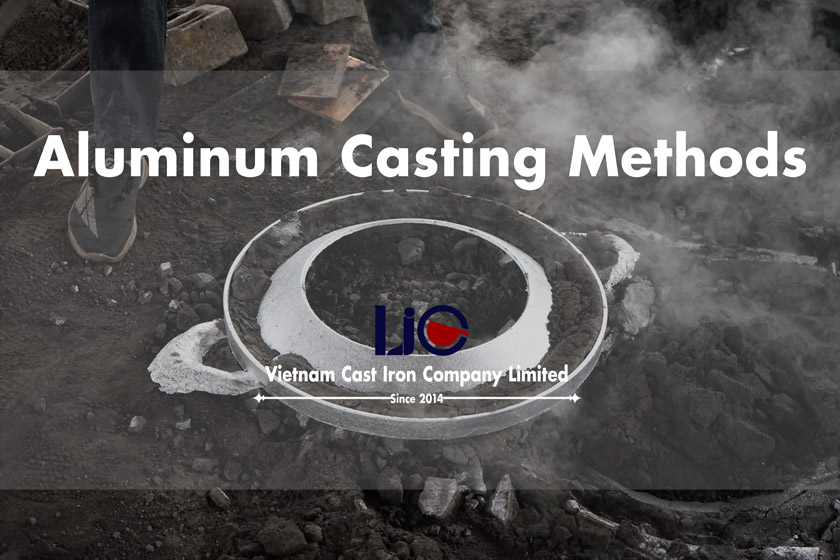The smart Trick of Alcast Company That Nobody is Talking About
The smart Trick of Alcast Company That Nobody is Talking About
Blog Article
See This Report about Alcast Company
Table of ContentsGet This Report about Alcast CompanyAlcast Company - Truths9 Simple Techniques For Alcast CompanyThe smart Trick of Alcast Company That Nobody is DiscussingAlcast Company - The FactsAlcast Company - Questions
The subtle distinction depends on the chemical web content. Chemical Contrast of Cast Light weight aluminum Alloys Silicon advertises castability by lowering the alloy's melting temperature level and improving fluidness throughout spreading. It plays a vital role in enabling detailed molds to be filled up accurately. Furthermore, silicon adds to the alloy's stamina and use resistance, making it useful in applications where resilience is critical, such as automotive components and engine components.It additionally enhances the machinability of the alloy, making it much easier to process into ended up items. In this method, iron contributes to the overall workability of light weight aluminum alloys.
Manganese adds to the stamina of light weight aluminum alloys and enhances workability (aluminum foundry). It is generally utilized in wrought aluminum products like sheets, extrusions, and accounts. The presence of manganese aids in the alloy's formability and resistance to cracking throughout construction procedures. Magnesium is a lightweight component that supplies stamina and influence resistance to aluminum alloys.
Everything about Alcast Company
It enables the manufacturing of lightweight parts with excellent mechanical buildings. Zinc boosts the castability of aluminum alloys and assists control the solidification procedure throughout casting. It boosts the alloy's toughness and hardness. It is commonly located in applications where elaborate forms and fine details are necessary, such as decorative castings and specific auto parts.

The key thermal conductivity, tensile strength, yield stamina, and elongation vary. Select appropriate basic materials according to the efficiency of the target product produced. Among the above alloys, A356 has the greatest thermal conductivity, and A380 and ADC12 have the cheapest. The tensile limit is the contrary. A360 has the finest return toughness and the highest possible elongation rate.
The smart Trick of Alcast Company That Nobody is Discussing

In accuracy spreading, 6063 is appropriate for applications where intricate geometries and top quality surface area coatings are extremely important. Instances consist of telecommunication rooms, where the alloy's remarkable formability permits sleek and visually pleasing designs while maintaining architectural stability. In the Illumination Solutions industry, precision-cast 6063 parts develop elegant and effective illumination fixtures that require detailed forms and great thermal efficiency.
It causes a finer surface area coating and much better corrosion resistance in A360. The A360 displays exceptional elongation, making it optimal for complex and thin-walled components. In accuracy spreading applications, A360 is fit for industries such as Consumer Electronic Devices, Telecommunication, and Power Devices. Its enhanced fluidity permits complex, high-precision parts like smartphone casings and communication tool real estates.
8 Easy Facts About Alcast Company Explained
Its special residential or commercial properties make A360 a valuable selection for precision spreading in these markets, enhancing item toughness and quality. Light weight aluminum alloy 380, or A380, is an extensively used casting alloy with a number of unique characteristics. It offers excellent castability, making it a perfect choice for accuracy casting. A380 shows excellent fluidity when molten, making certain complex and in-depth mold and mildews are properly reproduced.
In accuracy casting, light weight aluminum 413 radiates in the Consumer Electronics and Power Equipment industries. This alloy's remarkable deterioration resistance makes it an excellent choice for outside applications, ensuring resilient, sturdy products in the pointed out markets.
A Biased View of Alcast Company
When you have decided that the aluminum die casting procedure appropriates for your task, a crucial following step is selecting the most ideal alloy. The light weight aluminum alloy you select will significantly affect both the spreading process and the residential properties of the end product. Due to this, you have to make your decision thoroughly and take an educated technique.
Determining the most appropriate light weight aluminum alloy for your application will certainly imply considering a broad variety of attributes. The aluminum casting company initial category addresses alloy attributes that influence the production process.
What Does Alcast Company Mean?
The alloy you choose for die spreading directly influences several facets of the spreading process, like just how very easy the alloy is to work with and if it is vulnerable to casting defects. Hot cracking, additionally recognized as solidification breaking, is a common die spreading defect for aluminum alloys that can result in inner or surface-level tears or splits.
Certain aluminum alloys are extra susceptible to hot cracking than others, and your choice needs to consider this. It can harm both the cast and the die, so you should look for alloys with high anti-soldering residential properties.
Deterioration resistance, which is already a remarkable quality of aluminum, can differ substantially from alloy to alloy and is a crucial particular to consider relying on the environmental conditions your item will certainly be subjected to (Foundry). Put on resistance is an additional residential property commonly looked for in light weight aluminum items and can differentiate some alloys
Report this page